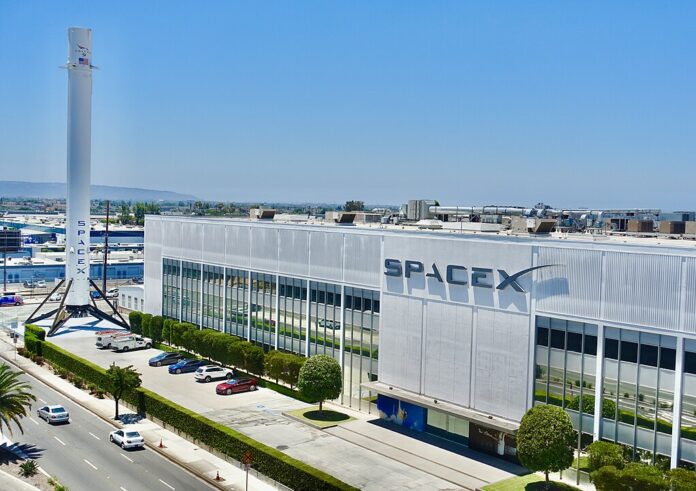Falcon 9 rocket successfully deploys South Korean telecom satellite and returns to earth, demonstrating SpaceX’s leadership in reusable rocket technology.
In another triumph for space exploration, SpaceX has once again showcased its cutting-edge reusable rocket technology. On 11 November 2024, the company’s Falcon 9 rocket lifted off from NASA’s Kennedy Space Center in Florida, carrying the Koreasat-6A satellite into orbit. This mission marked a significant milestone as the first-stage booster completed its 23rd flight, matching a previous record held by two other SpaceX boosters. The feat not only demonstrates the efficiency of SpaceX’s technology but also sets a high bar in the field of space exploration.
The launch took place at precisely 12:25 p.m. EST (1625 GMT), with the skies above Cape Canaveral clear for yet another successful mission. Just over eight minutes after liftoff, the Falcon 9’s booster made a smooth and precise landing at Landing Zone 1, located at Cape Canaveral Space Force Station. This achievement brings SpaceX’s total number of successful booster recoveries to an impressive 364 — a figure that includes recoveries from both its Falcon 9 and Falcon Heavy programmes.
As the booster made its way back to Earth, the Falcon 9’s upper stage pressed on with its mission to deploy the Koreasat-6A satellite. Around 34.5 minutes into the flight, the satellite was successfully released into its designated geosynchronous transfer orbit. From there, the 3.9-ton satellite will gradually manoeuvre into a fixed position over Earth, situated approximately 22,236 miles (35,786 kilometres) above the equator. This orbit allows the satellite to maintain a steady position relative to South Korea, providing uninterrupted communications coverage.
The newly deployed Koreasat-6A will replace the ageing Koreasat-6 satellite, which has been operational since 2010. Manufactured by French aerospace giant Thales Alenia Space, the upgraded satellite is equipped with the advanced Spacebus 4000B2 platform. It boasts six Broadcasting Satellite Service (BSS) transponders and twenty Fixed Satellite Service (FSS) transponders, enabling it to enhance broadcast and communication services throughout South Korea.
Thales Alenia Space expressed confidence that the new satellite would deliver robust, high-quality communications to millions of users, ensuring South Korea stays at the forefront of digital connectivity. In a statement, the company highlighted that Koreasat-6A is optimised to support both television broadcasting and internet services, making it a crucial asset for the region’s telecom infrastructure.
This mission is just one of many that SpaceX has accomplished this year, marking its 107th successful launch in 2024. The remarkable reliability of the Falcon 9 rocket, coupled with its ability to be reused multiple times, underscores SpaceX’s leadership in space innovation. Reusability has become a game-changer in the industry, slashing costs and enabling more frequent launches. With this latest mission, SpaceX continues to prove that reusing rockets is not just a lofty goal but a practical reality that benefits both commercial and governmental space efforts.
SpaceX’s founder, Elon Musk, has long championed the benefits of reusable rocket technology, and the results are evident. The ability to use the same booster for over twenty missions drastically reduces the cost of launching satellites, making space more accessible. The continued success of SpaceX’s recovery efforts — whether on land or sea — shows the immense progress made in reusable spaceflight technology.
As for Koreasat-6A, it will play a vital role in improving communications across South Korea. By replacing the older Koreasat-6, which has served the region for over a decade, the new satellite will ensure that users benefit from clearer broadcasts and faster internet speeds. The satellite’s geostationary orbit will allow it to cover all of South Korea, making it a crucial tool for both broadcasting and internet service providers.
But it’s not just about replacing old equipment. The launch aligns with South Korea’s broader ambitions to enhance its satellite communications infrastructure, especially as demand for internet connectivity continues to soar. As countries worldwide look to bolster their digital infrastructure, satellites like Koreasat-6A will play an increasingly crucial role.
The mission also reflects SpaceX’s growing portfolio of international clients. By partnering with global companies like Thales Alenia Space and supporting nations like South Korea in their technological pursuits, SpaceX is solidifying its position as the go-to provider for satellite launches and space missions.
Despite the challenges inherent in spaceflight, SpaceX’s accomplishments in 2024 showcase a consistent trend of success. The company’s relentless pace has not only pushed technological boundaries but has also demonstrated the value of innovation in an industry often dominated by traditional methods. SpaceX’s ability to repeatedly land and reuse boosters is reshaping expectations for what is possible in space exploration.
As Koreasat-6A makes its way to its final orbit, the satellite will soon begin its mission, providing essential communications services to millions. For SpaceX, it’s yet another notch on the belt, as the company continues to push the limits of what’s achievable in space technology. With plans for even more ambitious missions in the future, SpaceX’s journey is far from over.
